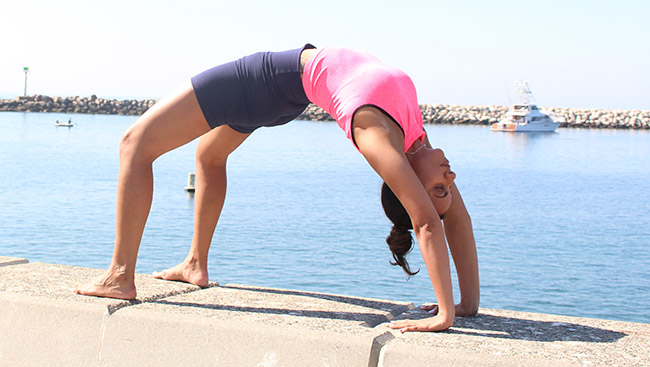Apply these simple techniques to any stretch to help increase your flexibility, unlock new ranges of motion, and decrease your chances of all sorts of injuries and pain.
Flexibility is not only key for improving mobility and healing aches and pains, it can free up blocked energy pathways, and can open new realms of fitness capabilities. The only problem is - do you feel you need to spend hours stretching to achieve ‘good flexibility?’ If so, you’re not alone! It is a common misconception that stretching takes a lot of time however being a Fascial Stretch Therapist, I have devised these 5 simple techniques for you to up your flexibility without spending hours.
Applying these simple techniques to any stretch will help increase your flexibility, open up your energetic pathways, destress your mind, unlock new ranges of motion, and greatly decrease your chances of all sorts of injuries and pain.

Get the energy moving
Engaging in a slight warm-up is extremely beneficial to create circulation. A warm-up can be as simple as this: Standing with arms overhead, take a deep breath in, and pull the arms down with your exhale. Repeat 10x and feel the oxygen moving through your body!
Toss out the long list of stretches and pick 2
Up until now, we have been doing the standard 30-60 second hold and then move on to the next stretch. However, in understanding muscle anatomy, we know that muscles have little sensors to monitor when the muscle gets stretched past its ‘safe zone.’ These little sensors are called stretch receptors and are there to protect. To signal to stretch receptors that there is NO danger, and that we actually want to stretch the muscle, we must stick around in the stretch for a few minutes and breathe. Use pillows, blocks, furniture to help stabilize you. Stay in the same stretch or gently move into a different angle for up to 5 minutes. This will resemble a Yin style yoga stretch.

Breathe intentionally
Staying connected to a relaxed breathing pattern while stretching means that the stretch cannot be too intense. It also signals to the body that there is no danger and the stretch receptor can release its hold on the muscle - so as to elongate!
Stretch neglected areas
In my Stretch Therapy practice, I have noticed that the parts we use the most often, we stretch the least. I am referring to the hands/wrists and the feet/ankles. The reason it is wise to stretch these areas is because the tissue (Fascia) that starts at your hands, runs up to the neck and shoulder. The concept of stretching along fascial lines has greatly helped people to relieve their recurring neck and shoulder tension. This concept applies to the feet as well. The tissue from the bottom of your feet (plantar fascia) is the same tissue that runs up the back of the leg all the way to the hip. This is called the Superficial Back Fascial Line and the same tissue actually runs all the way up to the neck! Releasing stuck energy in these areas results in much less tension pulls in the tight areas.

Incorporate into day-to-day
Once you incorporate the previous 4 tips, it is safe to say your stretching routine can be very effective even if it is 10 minutes. Now 10 minutes a day can be incorporated very easily, you just have to stay intentional. Perhaps you can sneak it in while on a zoom call? Or while waiting for the coffee to brew - if you follow me on social media you know this one is my jam! Another option my clients use is they choose 1 stretch before bed. It helps them unwind, relax the nerves, and sleep better.
Using these 5 simple techniques will result in more energy, more flexibility, longevity, and best of all you become physically able to do more movements. Aim for 10 minutes a day, and if you do more, great. Keep it a regular practice and you will see progress! You may also notice you breathe more mindfully throughout the day. Stretching is truly a great way to reconnect with your body. Keep it gentle and meet your body where it is at.

ABOUT THE AUTHOR: Asma Kassam, BHK, CSNA, CFST is a Kinesiologist, Fitness coach, Certified Sports Nutrition Advisor, Injury & Mobility coach, Fascial Stretch Therapist and Women’s health advocate. Visit: www.akfitnessandhealth.com






